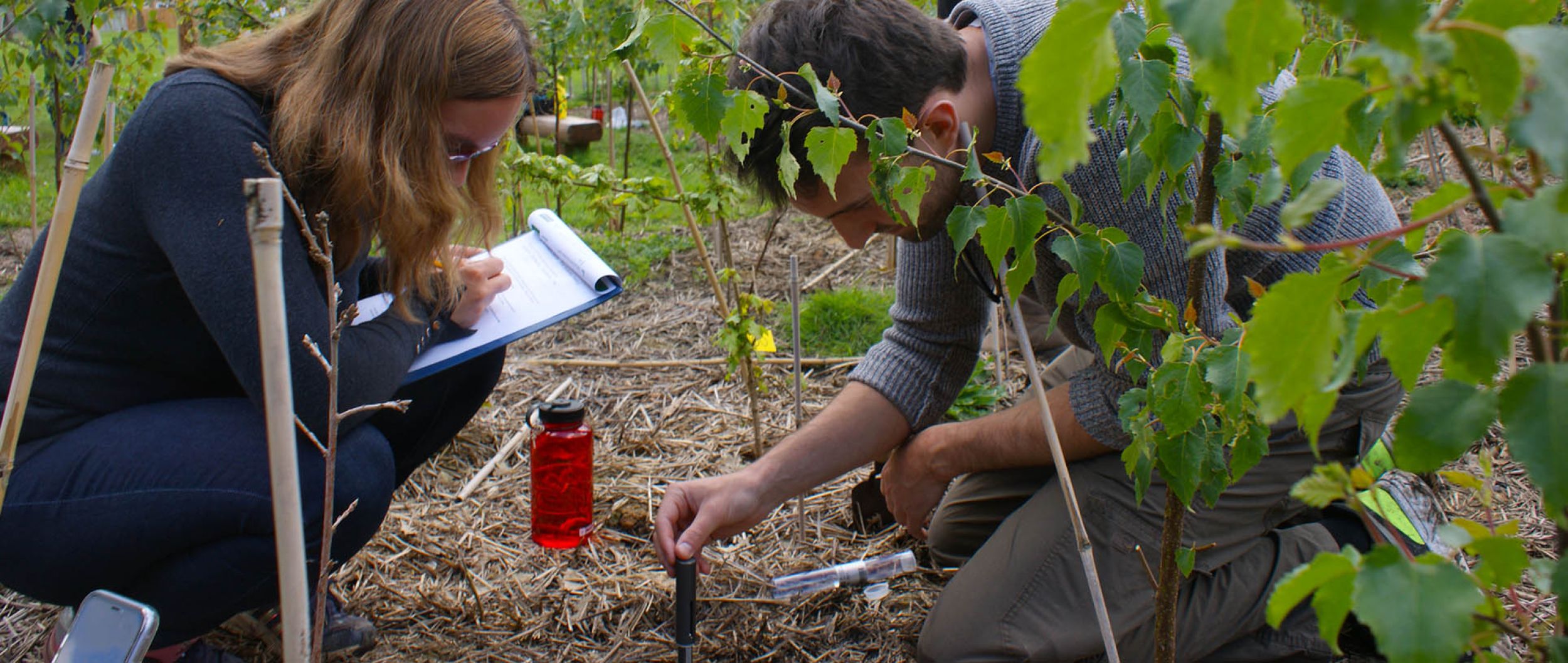
Witney Tiny Forest (Oxfordshire), credit Earthwatch Europe
Tiny Forests as living laboratories
Using our Tiny Forests as a network of living laboratories, we are working with communities to monitor and understand the environmental benefits that Tiny Forests provide in urban areas, across different geographical areas and demographics.
At each Tiny Forest, the local community is encouraged to take part in tree planting, followed by the care and monitoring of the trees as they grow. We want to use each Tiny Forest as an opportunity to build social cohesion, re-connect people to nature, raise environmental awareness and empower positive action. We also want to understand the effects that Tiny Forests have on individuals' wellbeing and their connection with nature.
The results of our research will be used to inform policy, such as the Green Instructure Framework, and guide other agencies in how to use Miyawaki forests in urban areas to provide maximum benefits.
Photo: Hammersmith Park Tiny Forest (London), credit Earthwatch Europe
Citizen science
The information gathered on Tiny Forests is collected by citizen scientists - members of the public that volunteer to collect and/or analyse data on a scientific research topic. Without citizen scientists we could not collect the amount of data needed to answer Tiny Forest research questions at a national and international scale.
In an average year, citizen scientists have spent 5,200 hours collecting Tiny Forest data. This would take one scientist 650 days to collect!
There are also benefits for the citizen scientists, such as joining a community, improving scientific knowledge, nature connectedness and a chance to support nature restoration, even developing skills that benefit your CV!
If you’d like to become a citizen scientist, head to our ‘Get Involved’ page
Photo: Monkton Park Tiny Forest (Chippenham), credit Earthwatch Europe
Research topics
The Tiny Forest monitoring programme encourages citizen scientists to explore five key areas to understand the environmental and social impacts of the forest and how to drive positive action for the planet:
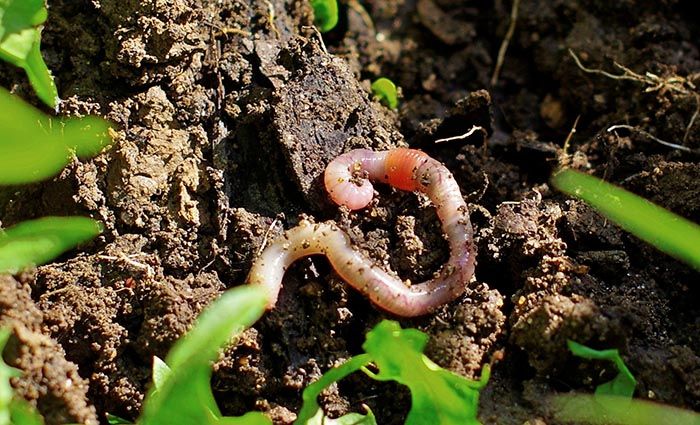
Southmere Park Tiny Forest (London), credit Lucyna Kaniecka
Biodiversity
Tiny Forests have multiple layers and habitats that act as a refuge for wildlife within urban areas, because of this we expect biodiversity to increase within Tiny Forests. We want to understand how abundance and composition of three target insect groups (pollinators, butterflies and ground dwellers) changes over time.
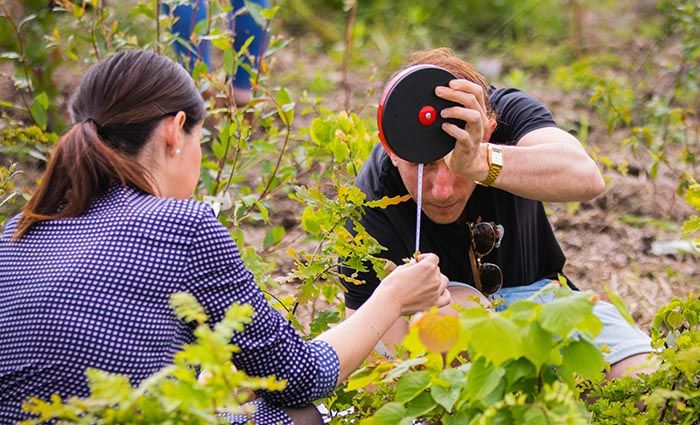
Perry Common Tiny Forest (Birmingham), credit Fever-Tree
Carbon storage
Trees capture atmospheric carbon through photosynthesis and lock this carbon away in living biomass, such as the tree leaves, trunks and roots. In fact, approximately half of the dry weight of a tree is carbon. A representative sample of 100 trees are tagged in each Tiny Forest during planting day. Citizen scientists then measure the diameter, height and mortality of these tagged trees each year to record their growth and calculate an estimate of how much above ground carbon is stored annually.
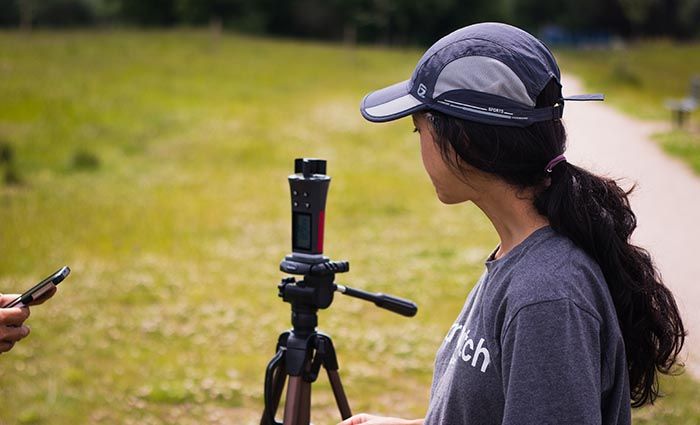
Perry Common Tiny Forest (Birmingham), credit Fever-Tree
Thermal comfort
Tiny Forests have the potential to help regulate urban temperatures. Water evaporates from trees through tiny holes (stomata) in the surface of the leaves. This is known as evaporative cooling. Tree canopies also provide shade, improving the ambient temperature and prevent solar radiation from heating building walls and roads. To measure the effect Tiny Forests have on urban temperature regulation, our citizen scientists monitor air temperature, humidity, wind speed and their personal experience in and around the forests.
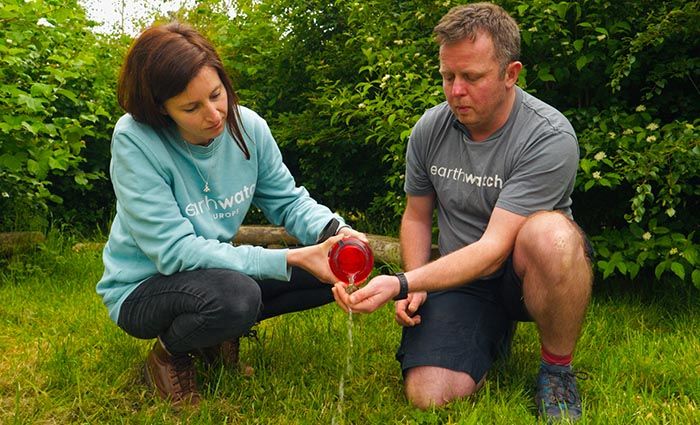
Witney Tiny Forest (Oxfordshire), credit Angelina Lee
Flood management
All urban trees play a role in the water cycle and provide flood management services. Tree roots help water penetrate deeper into the soil at a faster rate, reducing surface run-off and storing more water in the soil. Tree leaves, branches and trunks also catch rainwater as it’s falling, slowing the rainfall. To measure how Tiny Forests effect flood management citizen scientists measure water infiltration rate, soil moisture, soil compaction, soil texture and soil colour.
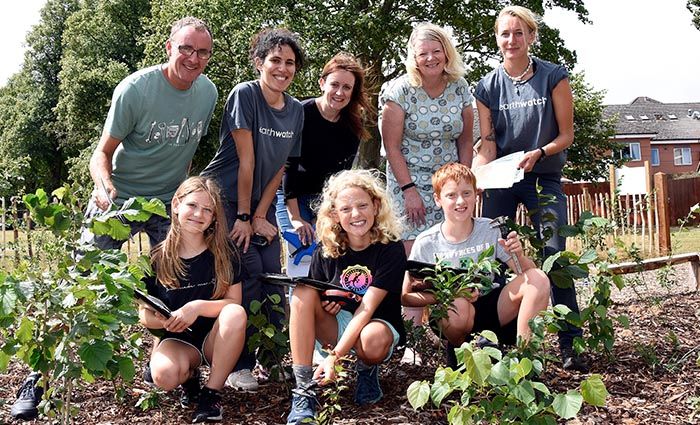
Queen's Park Tiny Forest (Hinckley), credit Hinckley & Bosworth Borough Council
Social benefits
There is growing evidence that trees improve mental and physical health. Tiny Forests can support peoples’ health and wellbeing through aesthetic value, opportunities to watch wildlife and personal involvement in the project. We build on this by increasing people’s connection to nature through education, engagement and citizen science activities. To understand the benefits of engaging with the Tiny Forest project, we carry out surveys with volunteers and local communities.
Tiny Forest partnerships and research collaborations
We are collaborating with researchers and university students to develop research into these topics and many more using the Tiny Forest network as a living laboratory. Combined with the citizen science data we will be able to:
- Quantify and describe their benefits, i.e. how good Tiny Forests are for supporting our wellbeing and the environment.
- Build knowledge on the best practices to plant, support and engage with Tiny Forests.
- Raise awareness and support interaction with nature where we need it the most, in our cities.
Our existing research collaborations include projects with:
Derby University
Essex University
University of Leicester
University of Sheffield
University of Warwick
Our Tiny Forest Science team is also co-ordinating the Miyawaki Research Network (MiRN). This is a group of researchers and Miyawaki practitioners from seven different countries including the UK, France, Netherlands, USA, Canada, India and Australia. Partners are collaborating to understand the particular features of the Miyawaki approach compared to other tree planting methods. The network connects members, provides opportunities to share expertise and develops consistent methods for data collection and analysis.

